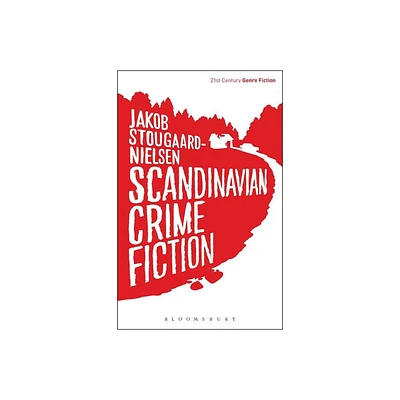Home
Contemporary French and Scandinavian Crime Fiction: Citizenship, Gender Ethnicity
Loading Inventory...
Barnes and Noble
Contemporary French and Scandinavian Crime Fiction: Citizenship, Gender Ethnicity
Current price: $82.00


Barnes and Noble
Contemporary French and Scandinavian Crime Fiction: Citizenship, Gender Ethnicity
Current price: $82.00
Loading Inventory...
Size: Hardcover
*Product Information may vary - to confirm product availability, pricing, and additional information please contact Barnes and Noble
A comparative approach to French and Scandinavian crime fiction.
This book offers a study of Danish, Norwegian, Swedish, and French crime fiction from 1965 to the present. Anne Grydehøj presents twelve literary case studies to examine how the genre responded to shifting social realities. The book’s analysis focuses on the way that crime fiction internalized themes regarding the French model of republican universalism and the Scandinavian welfare stateboth of which were routinely characterized as being in a state of crisis at the end of the twentieth century. Adopting a comparative and interdisciplinary approach, the book investigates the interplay between contemporary Scandinavian and French crime narratives as it considers the way these novels engaged with the relationship between state and citizen through the lens of class, gender, sexuality, and ethnicity.
This book offers a study of Danish, Norwegian, Swedish, and French crime fiction from 1965 to the present. Anne Grydehøj presents twelve literary case studies to examine how the genre responded to shifting social realities. The book’s analysis focuses on the way that crime fiction internalized themes regarding the French model of republican universalism and the Scandinavian welfare stateboth of which were routinely characterized as being in a state of crisis at the end of the twentieth century. Adopting a comparative and interdisciplinary approach, the book investigates the interplay between contemporary Scandinavian and French crime narratives as it considers the way these novels engaged with the relationship between state and citizen through the lens of class, gender, sexuality, and ethnicity.

















